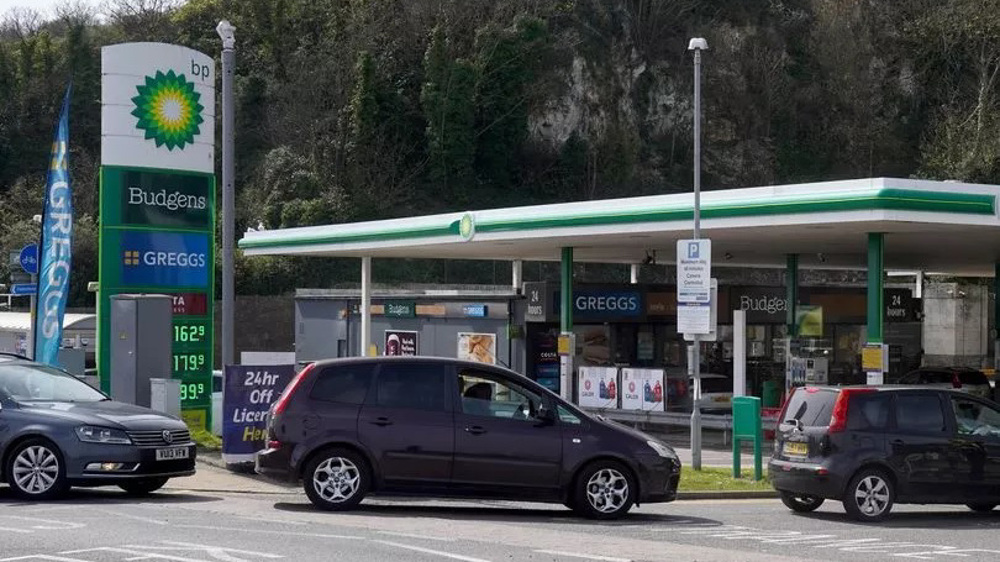'Over one million Britons use food banks'
Over one million people across the UK have been forced to receive aid from food banks in the past 12 months, a charity has revealed.
The Trussell Trust, which coordinates a network of food banks in the UK, said 1,084,604 people received at least three days of emergency food from the trust’s 445 food banks in 2014-15 – up from 913,000 the last year. The figures post a 19% increase over the previous 12 months.

BENEFITS & LOW INCOMES
The group said the main reason behind people visiting food banks was problems with benefits. The figures show the biggest proportion were triggered by people pitched into crisis because their benefit payments had been delayed, or stopped altogether as a result of the strict jobcentre sanctions regime. The charity also said that there had been an increase in those on low incomes.
The Trussell Trust chairman, Chris Mould, said despite signs of a wider economic recovery, many people were experiencing "catastrophic" problems as a result of low incomes.
Economic Commentator, Shabbir Razvi, told Press TV that the newly-released figures “really reflect that in Britain we are experiencing the result of the austerity measures which have been applied for the last 5 years by the coalition government.”
“If things are not remedied rapidly we will experience an increase in the reliance on the food banks and poverty in the UK.”
TURF WAR
The Labour party, which has unveiled a five-point plan to tackle the rising numbers of people using food banks, seized the opportunity to attack government policies:
"The shocking rise in the number of people relying on Trussell Trust food banks since 2010 shows the Tory plan is failing…David Cameron’s failure to tackle low pay, the bedroom tax and delays in benefit payments have led to more than a million people depending on emergency food aid," said shadow work and pensions secretary, Rachel Reeves.
"Labour has a better plan to raise working families' living standards so fewer people depend on food banks to survive," added Reeves.
The Conservatives were quick to react and threw the ball into the Labour’s court. A spokesman for the party said “increased use of food banks is partially because the last Labour government didn't let jobcentres direct people to them when they were in need of food."
"Employment may increase if the Labour party is promising to do so and the conservative party and the coalition government have been claiming that they have done so for the last 5 years. But the reality of the situation is that the jobs that we created in the UK are low paid jobs which lack security, which lack sort of sustainability of the employment and in the same time we are not addressing the issue of how the pressure on income has been so much that the employers are getting away by paying employees lower and lower wages and having contracts which are not in the interest of the employees," Razvi told Press TV's UK desk.

‘TIP OF THE ICEBERG’
The Trussell Trust launched its first foodbank in Salisbury in 2000. Back in 2009-10, before the Liberal Democrat-Conservative coalition took power, the charity had 56 food banks and fed only 41,000 people.
Experts warned that the figures were only the "tip of the iceberg" of food poverty in the UK.
Hannah Lambie-Mumford, a research fellow at the University of Sheffield, told the British daily the Guardian that “as data is not collected on the numbers of people experiencing food poverty, it is impossible for us to draw any conclusions about wider experiences from these statistics; that said, they are very likely to represent just the tip of the iceberg – with many more people experiencing food poverty than reflected in these numbers.”
Trussell Trust UK foodbank director, Adrian Curtis, made a similar comment:
"It's difficult to be sure of the full extent of the problem as Trussell Trust figures don't include people who are helped by other food charities or those who feel too ashamed to seek help."
EMERGING HEALTH ISSUES
Meanwhile some doctors believe the inability of families to buy enough food had become a public health issue.
"Poverty is already creating massive health issues for people today, and if we do not tackle the root causes of food poverty now, we will see it affecting future generations too," said John Middleton, the vice-president of the Faculty of Public Health.
"The Trussell Trust's latest figures highlight how vital it is that we all work to prevent and relieve hunger in the UK," continued Curtis.
HH/PHX
VIDEO | Palestinians inspect rubble of destroyed building in Rafah
Yemeni forces strike US, Israeli vessels in fresh pro-Palestinian operations
‘Say no to Biden’: US college being pressed not to endorse genocide
VIDEO | UN: Alarming food insecurity crisis grips Afghanistan
VIDEO | Stuck in quagmire
UK suspends legal assessments of Israeli violations in Gaza
Students protest at US universities to urge end in financial ties to Israel
Biden signs war aid bill supplying Israel, Ukraine with more weapons









 This makes it easy to access the Press TV website
This makes it easy to access the Press TV website